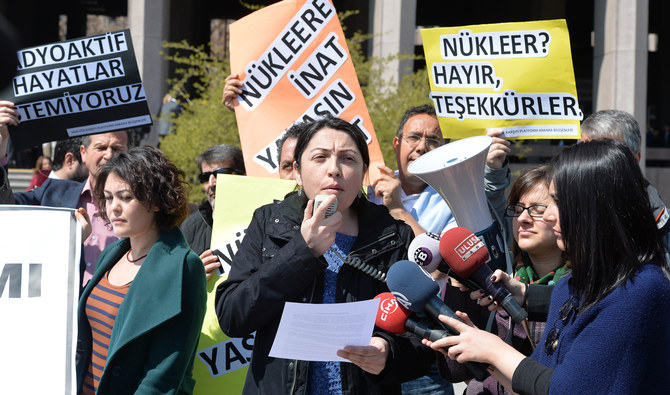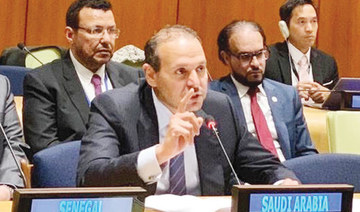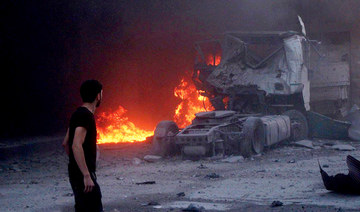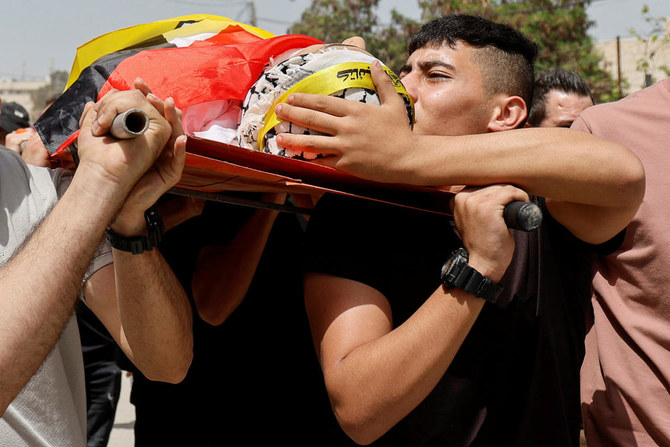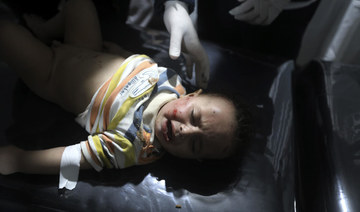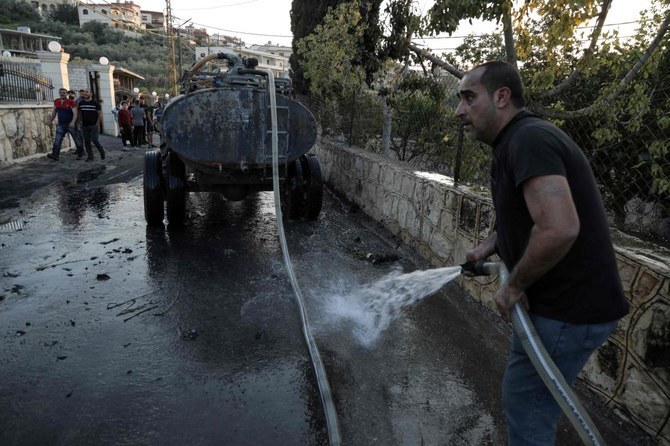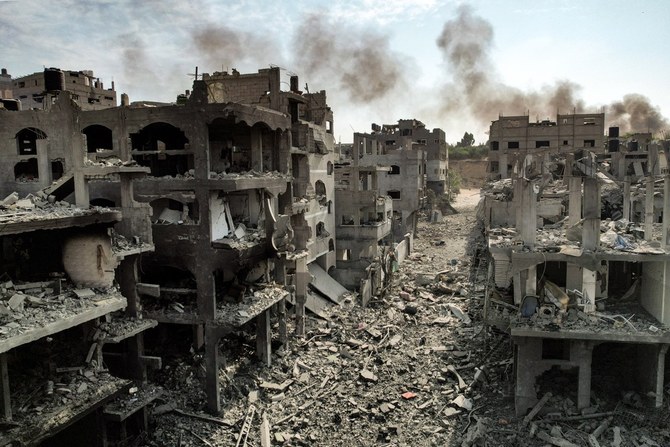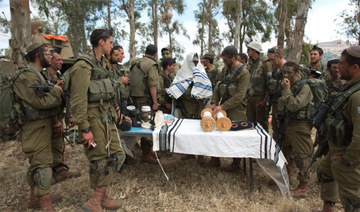ANKARA: As Turkish President Recep Tayyip Erdogan hinted on Wednesday that Turkey may need to obtain missiles with nuclear warheads, the possible repercussions of such a move sparked a new debate amid the recent celebrations of the North Atlantic Treaty Organization’s 70th anniversary.
Erdogan insisted that it was unacceptable for nuclear-armed states to prevent Ankara from obtaining its own nuclear weapons, but did not explicitly say whether Turkey was planning to acquire them.
“Some have missiles with nuclear warheads, (but they tell us) we shouldn’t have missiles with nuclear warheads. I don’t accept this. Almost all developed nations have them,” said Erdogan in a speech at the Central Anatolian Economic Forum.
“We have Israel nearby, as almost neighbors. They scare (other nations) by possessing these. No one can touch them,” he added.
Erdogan also announced that upgraded armed drones will be produced within two months.
As a signatory to the Nuclear Nonproliferation Treaty in 1980, as well as the Comprehensive Nuclear Test Ban Treaty in 1996, Turkey abides by the rules that forbid “any nuclear weapon test explosion or any other nuclear explosion” anywhere in the world.
“Turkey’s ultimate goal is to see a world free of nuclear weapons,” the country’s Foreign Minister Mevlut Cavusoglu said in February at the UN’s Disarmament Conference in Geneva.
The timing of Erdogan’s remarks is also curious, as Turkish-US relations are still marked by the country’s purchase of a Russian missile defense system despite the risk of heavy sanctions from Washington.
“An endeavor to build a nuclear weapon is very costly — countries who pursue this goal are usually met with international ostracism and serious sanctions. One may look at the example of North Korea and Iran. Is Turkish society ready to endure such a cost? I really doubt it,” Karol Wasilewski, an analyst at the Warsaw-based Polish Institute of International Affairs, told Arab News.
Wasilewski doesn’t think Turkey would be an exception in this case — both nuclear powers, and regional actors would be determined to stop it.
According to Wasilewski, this declaration is linked to the domestic developments unfolding in Turkey, although it is made in the context of Ankara’s current foreign policy paradigm — various AKP decision-makers have voiced the wish to make Turkey a global power.
“If we examine the president’s actions during the last month, we can see that he has been very determined to strengthen his alliance with nationalists. I think such a declaration is just another instrument to keep a nationalist electorate mobilized,” he said.
Experts consider that the development of such a missile with a nuclear warhead may result in a fundamental change in the Middle East and even the Eastern Mediterranean security architecture as it would make Turkey a formidable challenger to regional security dynamics, especially between Israel, Cyprus and Greece.
Madalina Sisu Vicari, an independent analyst on energy and geopolitics, said that given the substance of US-Turkish relations, it is highly unlikely that such a missile would be built in cooperation with the US.
But Vicari sees this declaration as an attempt to get leverage over Washington.
“Especially in the context of the debate about whether the US would withdraw its nuclear weapons from Turkey’s southern Incirlik air base, this declaration may be interpreted as a hint to joint production with Russia, hence an intent to build a bargaining chip toward US,” she told Arab News.
The defense and technology relationship between Turkey and the US has been further complicated by Ankara’s move to acquire Russian military technology, starting with the S-400 air defense system, while trying to remain at the same time a partner in the US F-35 program.
Washington is concerned that its fighter’s specific and technical features will be revealed to the Russians in this process.
According to a recent report by the Israeli think tank Besa Center: “The number of US nuclear bombs currently stored in Europe under NATO auspices is estimated at between 160 and 240, of which 50 to 90 are stored in Turkey.”
“The American nuclear weapons currently stored in Europe and Turkey are B61 bombs. Their explosive yield can be adjusted between 0.3 and 340 kilotons, so they can be used both tactically and strategically. However, according to NATO’s current deterrent strategy, they are intended only for tactical use,” the report noted.



